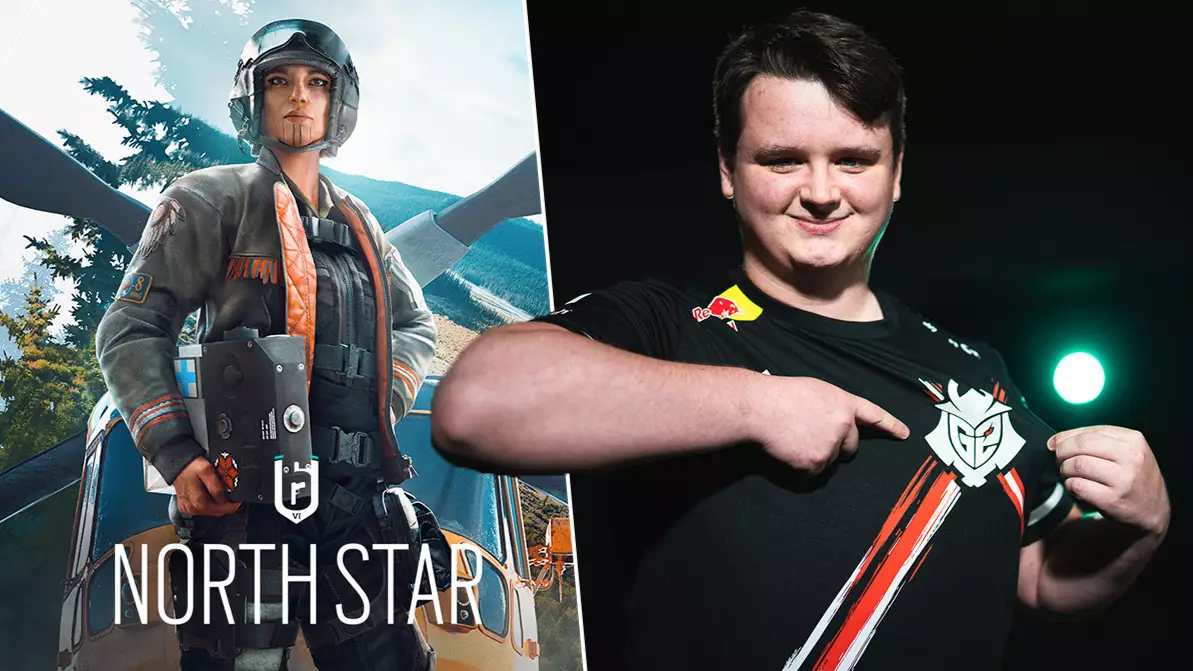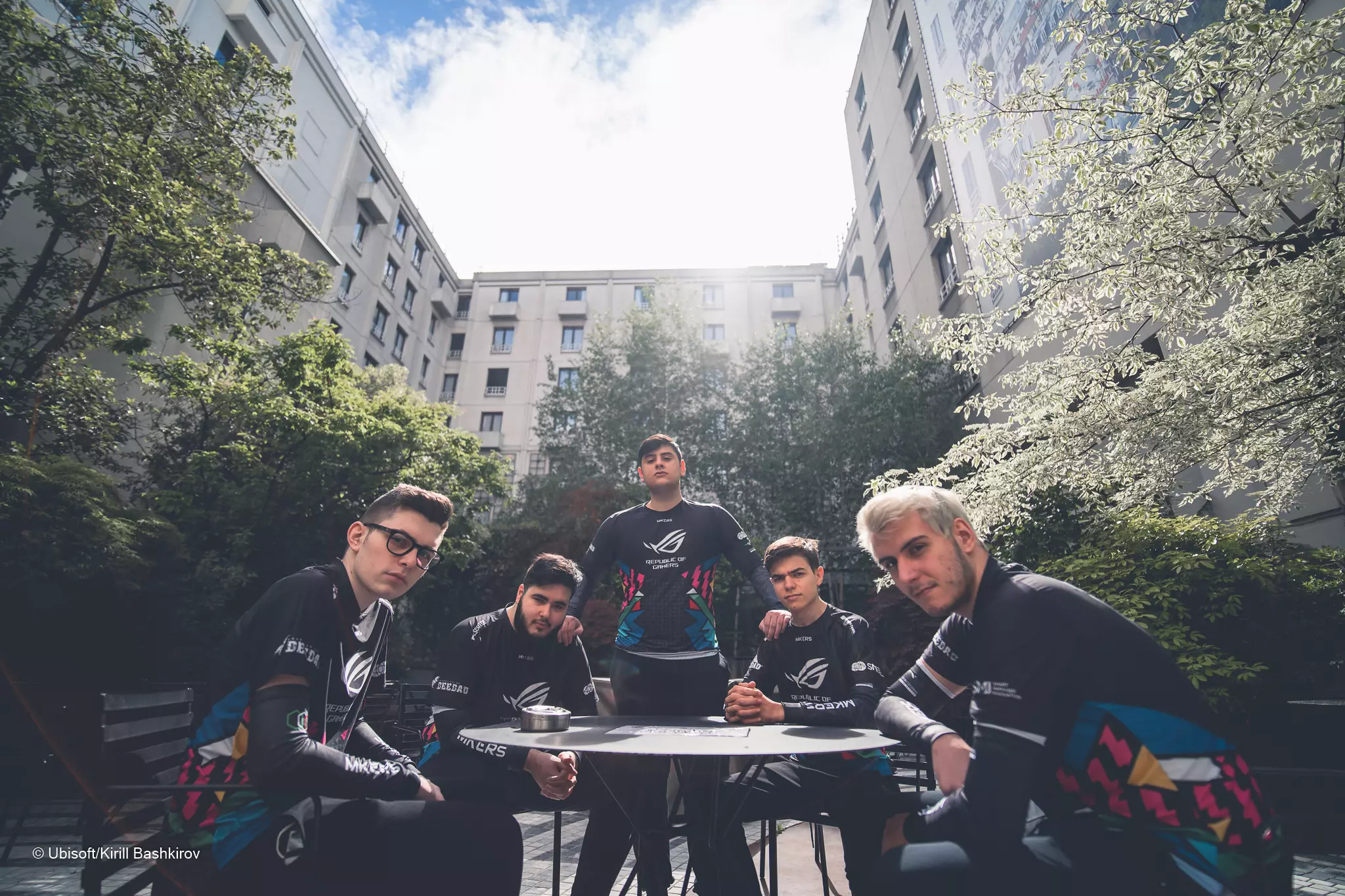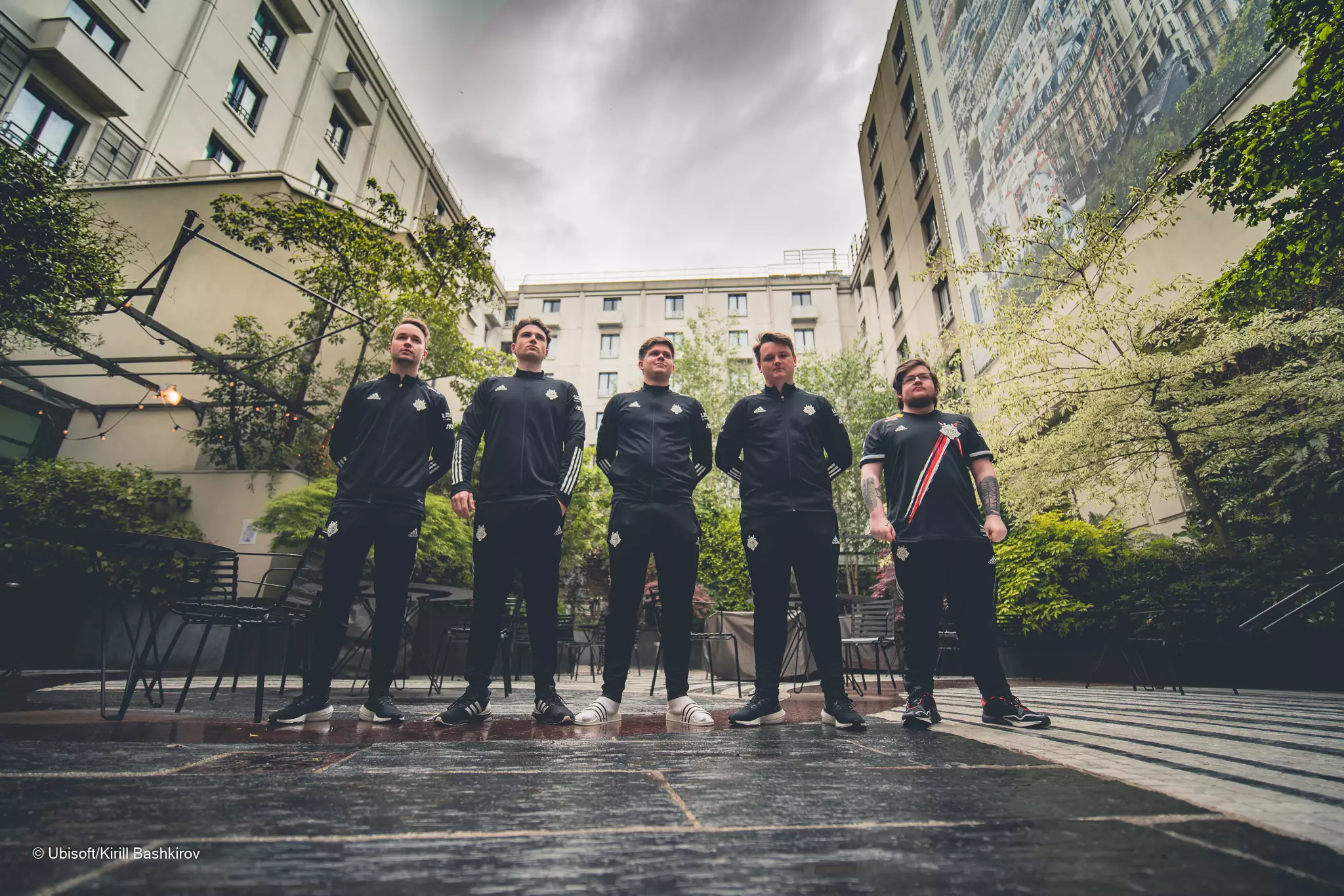
With the Rainbow Six Siege Invitational having played out on May 23, and Season 2 of the game's sixth year launching on May 25 - it's called North Star, and features a new operator, Thunderbird - we wanted to take a moment to check in with some of the game's top players. Yes, to see how they were feeling ahead of one of the biggest events in the Siege calendar - but also to find out how more than a year of pandemic-enforced lockdowns and changes to how they play and train has affected them, as professionals and people.
Because, while esports is inherently a digital medium, with competition players out on screens and across networks, there's so much to be said for the benefits of close-quarters companionship, and what that does to engender teamwork, effective strategies, and friendships, obviously.
Watch the reveal trailer for North Star, below...
Jordan Morley, aka Kayak (pictured, main), is one of the rising stars of the Siege scene, and joined G2 Esports in March 2021 having enjoyed success with Cowana Gaming. "The pandemic, for me, has had mental and physical effects," he says. "It interrupted my everyday working and exercise. Going to the gym was something that kept me mentally and physically in check - but when they closed within the UK, I struggled at first, gaining weight and not feeling happy with myself."
Advert
But as Kayak's performances showed, he didn't allow himself to spiral into a negative place. "I started to appreciate the small things that I took for granted, before COVID," he adds. "Things like just going for a walk, using a resistance band (to work out), and that positively affected me, as I had struggled for the first three to six months."
While in-person events were cancelled worldwide, Kayak still participated in several online tournaments, but neither that high-level play nor the training for it was as effective for his career's progression as live, LAN gatherings. "In-person training is much more valuable," he explains, "as you can give and take advice on a face-to-face basis, and meet the guys you work with, day in and day out. But that's something I've now experienced with the Six invitational going ahead [as a physical event] with strict COVID protocol in place."
That said, there's no doubt that earning a living in esports means that the global COVID pandemic had less of an impact on the day-in, day-out business of Kayak's professional life. "It didn't really change much," he explains, "as before COVID, I was playing games inside my room, too. Life of a gamer, I suppose, so there wasn't much change compared with the likes of an everyday worker."

Advert
From Italy, the team Mkers have overturned expectations to reach the Invitational. A wildcard entry in the open qualifiers, they beat a few more-established teams on their way to the finals. And for them, the onset of COVID, and the lockdowns, was something that they could mitigate thanks to today's technology.
"We're lucky enough to live in an era where we can stay in touch online, without putting ourselves or others at risk," says Mkers esport manager, Diego Hicham Aazzi. "And with the right precautions, we have managed to get together, in a sanitized and protected environment."
Italy was a country hit hard by COVID, early in the pandemic, with strict lockdowns enforced. but the manager doesn't feel that puts Mkers at any kind of disadvantage. "A global pandemic afflicts everyone, both mentally and physically," he says. "We are happy that some countries have not had heavy lockdowns like ours, and we hope everyone will come out, sooner or later."
The Six Invitational is the first time Mkers will play in a LAN event, though, and that's something that could put the underdogs at a disadvantage compared to teams who've done this kind of in-person competition before. "The isolation of the pandemic situation, and the distance [between players and staff], certainly didn't help the group's strength. And it amplified the emotions, the problems, and it wasn't easy. But this hasn't stopped us - we know we can do more, and we hope to prove it soon."
Advert

Mkers made the lower-bracket second round of the Invitational, having advanced from their group stage in fifth (only narrowly missing out on an upper-bracket quarter-final), so clearly they proved something to the Siege world at large. G2, on the other hand, were eliminated in the first round of the lower bracket - and it could be that players having more time at home, in the game, actually helped emerging talent improve before the return of LAN competition.
"I think the lockdowns could potentially see a new wave of players come into Siege," Kayak says. Even for me, because of COVID, I focused more of my time in Siege, and benefitted massively in being able to concentrate on this game to the point where it has become my career, my job. Even if one player got through to higher competition due to the COVID-19 situation, I would call that someone making the best of a bad situation - and good on them! More people playing the game, the better, in my opinion, as growth is really important for the longevity of the game."
And as North Star arrives, both Kayak and Aazzi have their own wishlist of additions and improvements. "We just hope that in the new season there is the possibility of having fewer bugs with a balanced balance on both sides, attack and defence," says the MKer man, who's otherwise pretty happy with the state of Siege in 2021. As for the breaking-through Brit, Kayak goes into deeper detail:
Advert
"Being a pro player, it's sometimes difficult to keep up with the newest seasons and announcements, as I am always honed in thinking about the current season and how to become the best in that specific meta. However, one thing I am eager to see is that dead players can still operate their observation tools - like if Echo is killed early, he would be able to still operate his drones from beyond the grave and deny the plant. I do like the idea, and I think it gives this game a unique point compared to Call Of Duty and CSGO - your teammates can still have influence over the round even after they have played.
"One other feature I'm really interested to see is the sixth pick ability, which is accessible in ranked and competitive play. It's basically a system that was implemented a year or two ago now, which allows you to pick one out of five operators in your line to change after the 'reveal phase' which is when the enemy team can see what composition of operators you have chosen. So, basically, you can hide one of the operators and make a surprise swap to change the course of a round - but with this new proposed change, you can change your operator in the preparation phase, which is after you have droned the site. It will reward players that have more forward thinking and can look for weaknesses in the defence, which when I look at the game on a more strategic level is a massive change."
North Star's new operator, Thunderbird (aka Mina Sky), isn't the only change coming with this update, as the game's Favela map is also reworked for Season 2. The new operator's abilities include the deployment of a healing station, and Ubisoft describes her as "a low armor, high-speed operator, equipped with a SPEAR .308 or SPAS-15 as a primary weapon, and BEARING 9 or Q-929 as a secondary weapon." Find more information on Year 6 Season 2 at the game's official website, and watch the reveal panel on YouTube below, or here.
Featured Image Credit: Ubisoft
Topics: Esports, Rainbow Six Siege, Mental Health, Ubisoft, Interview